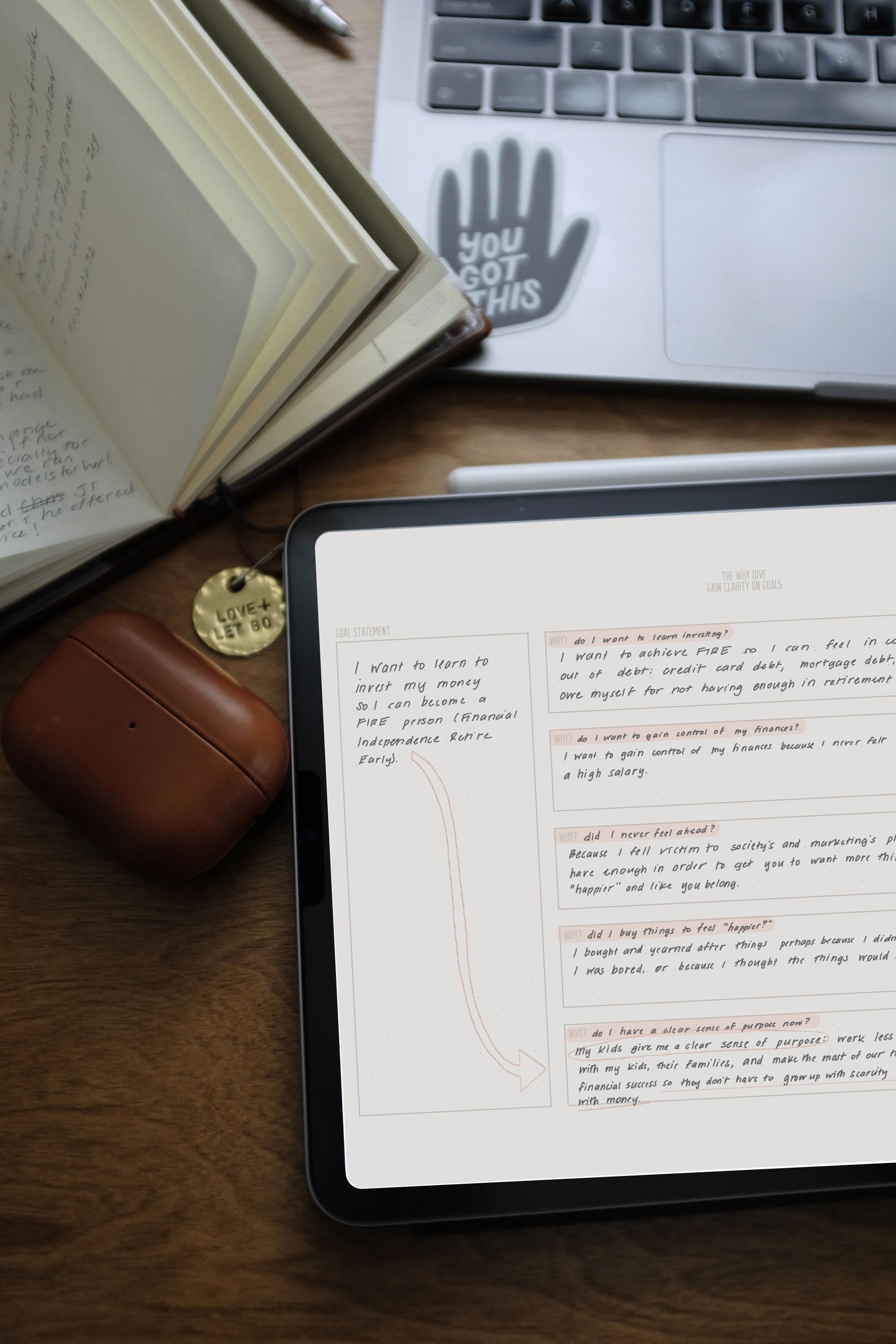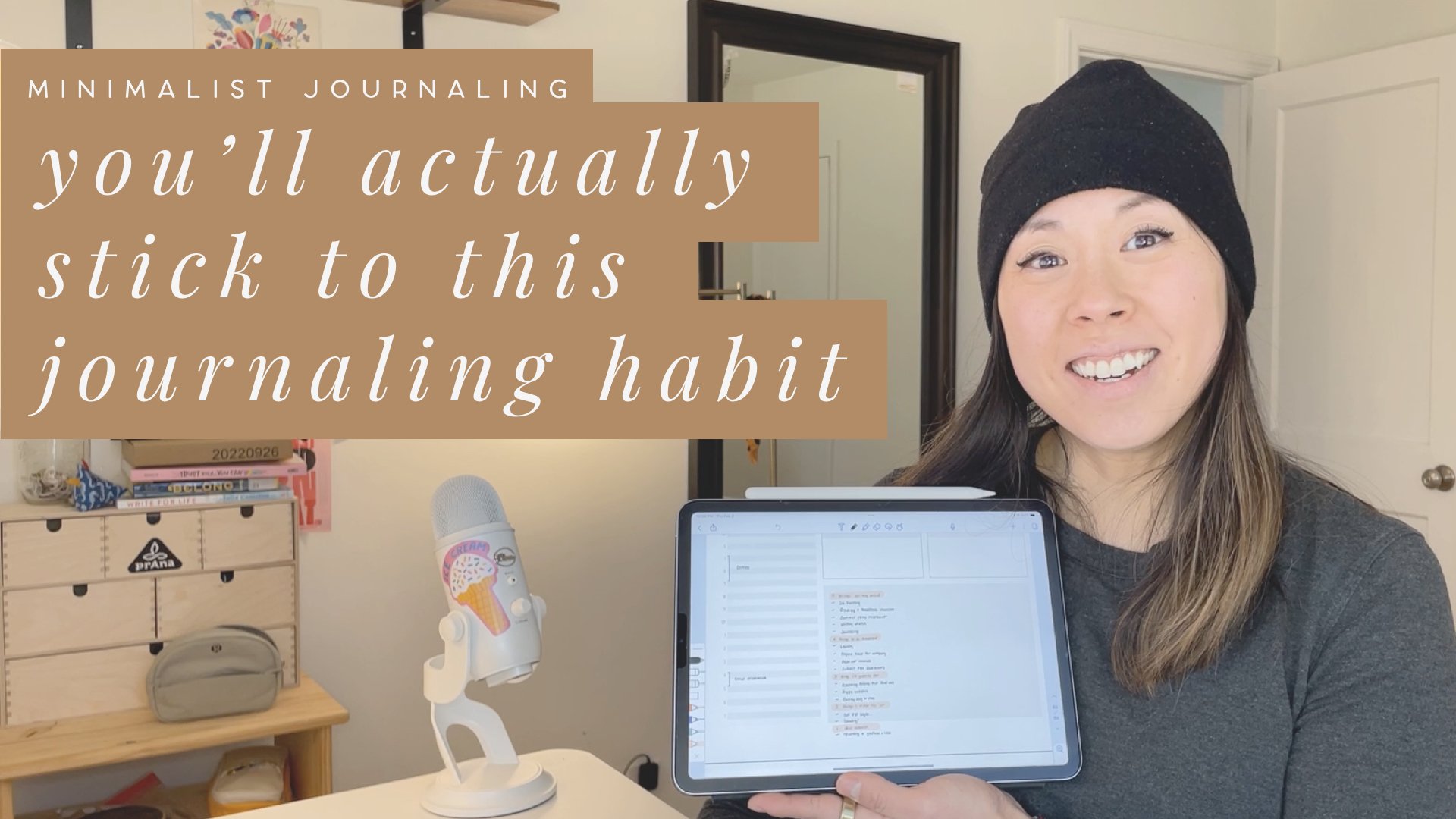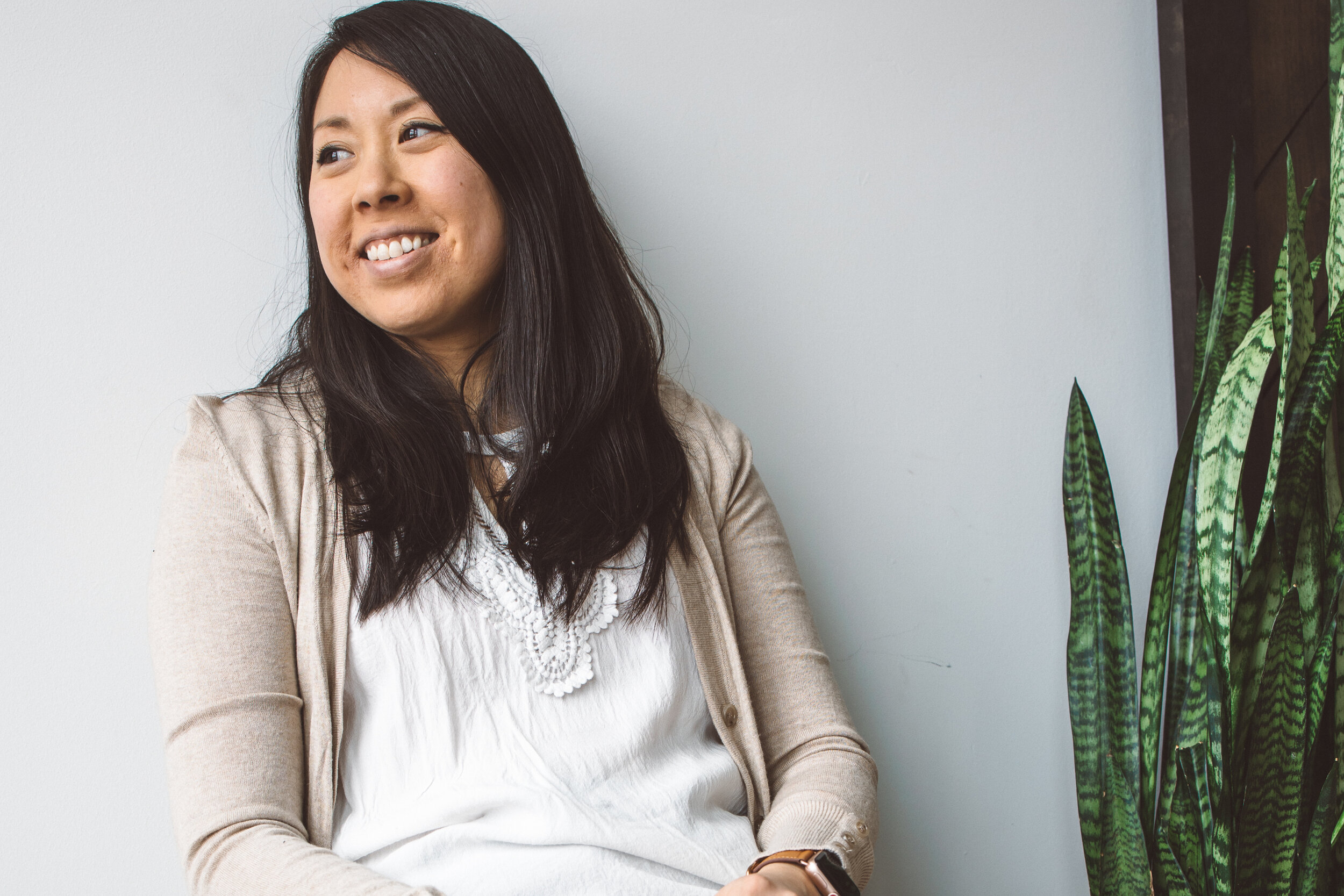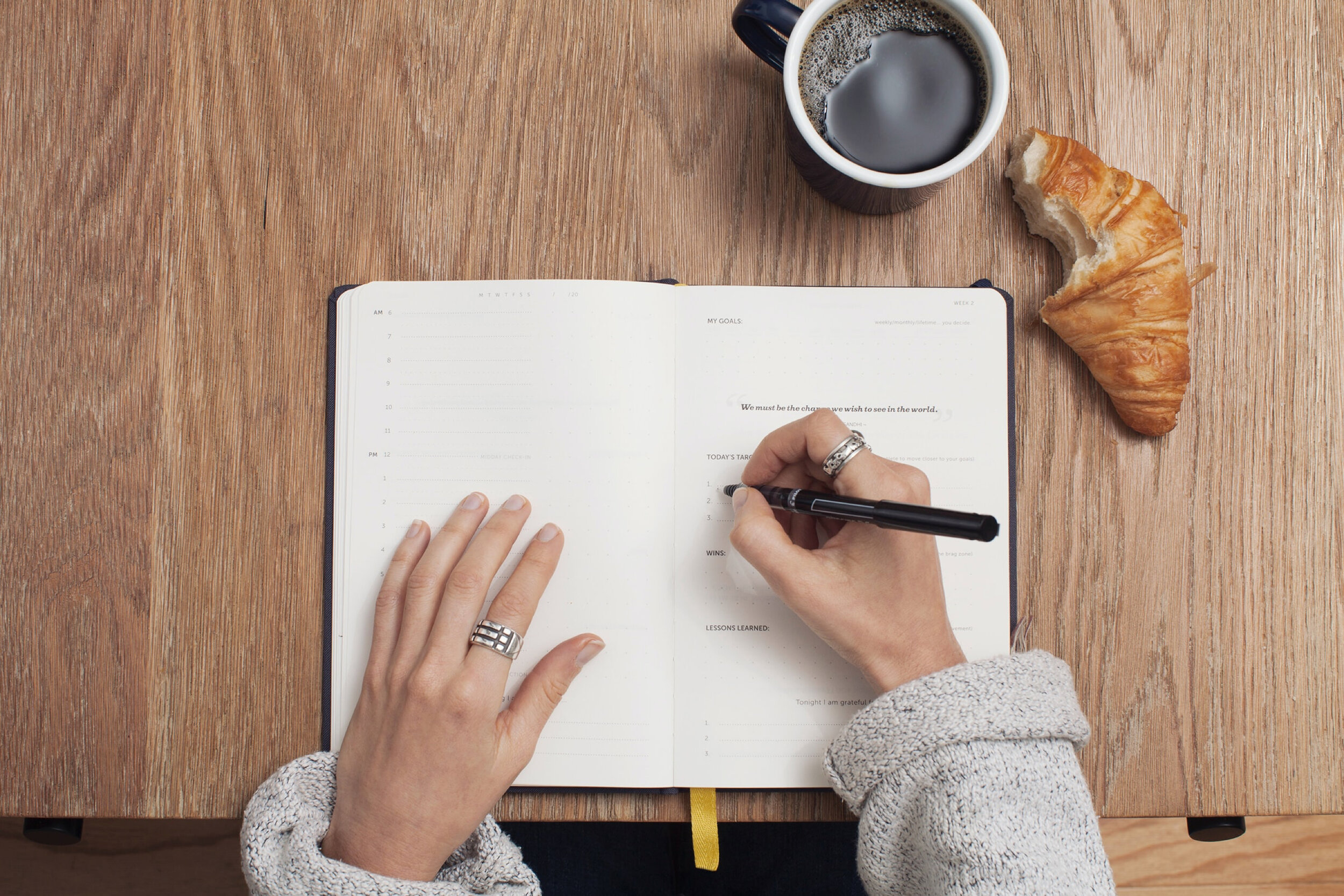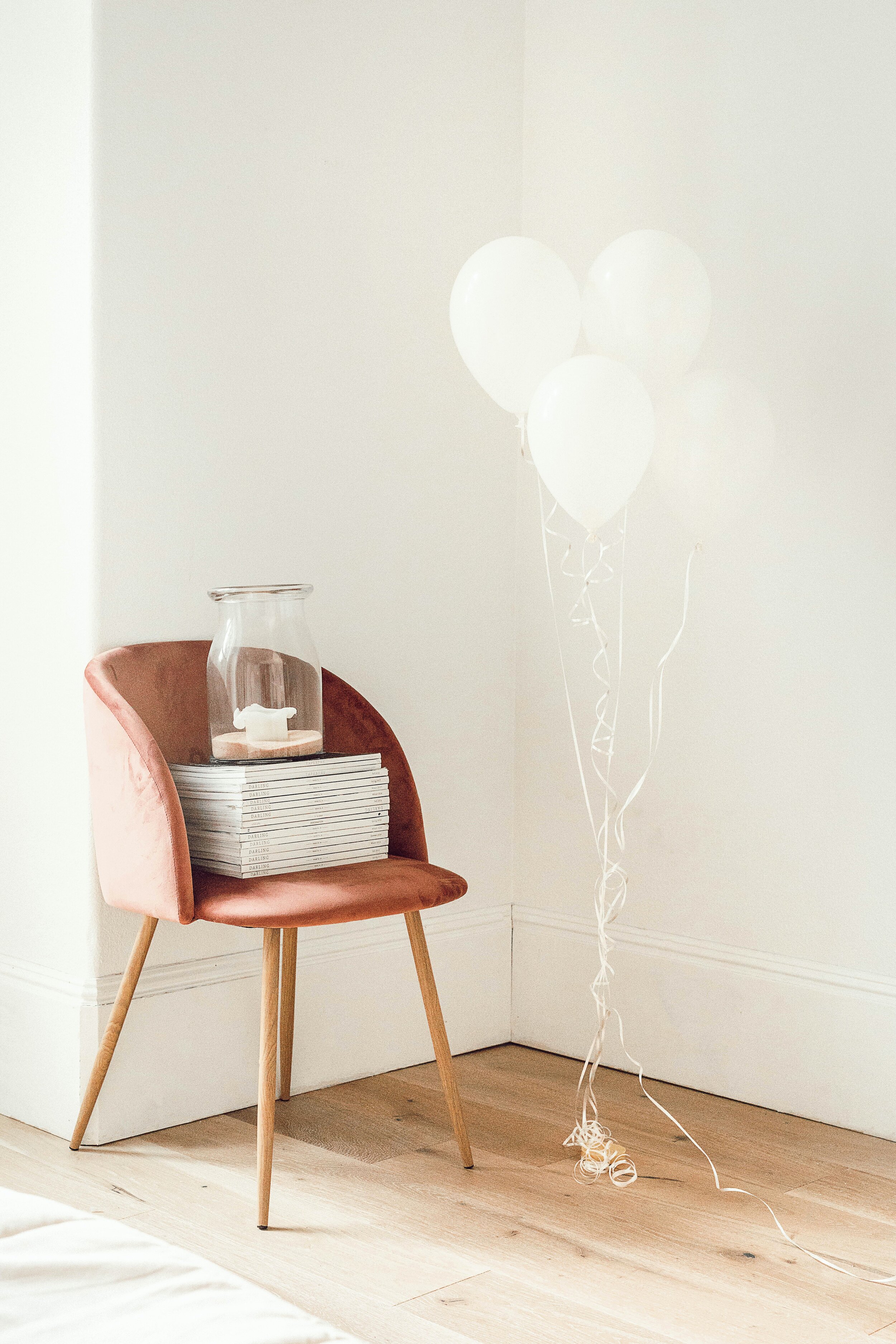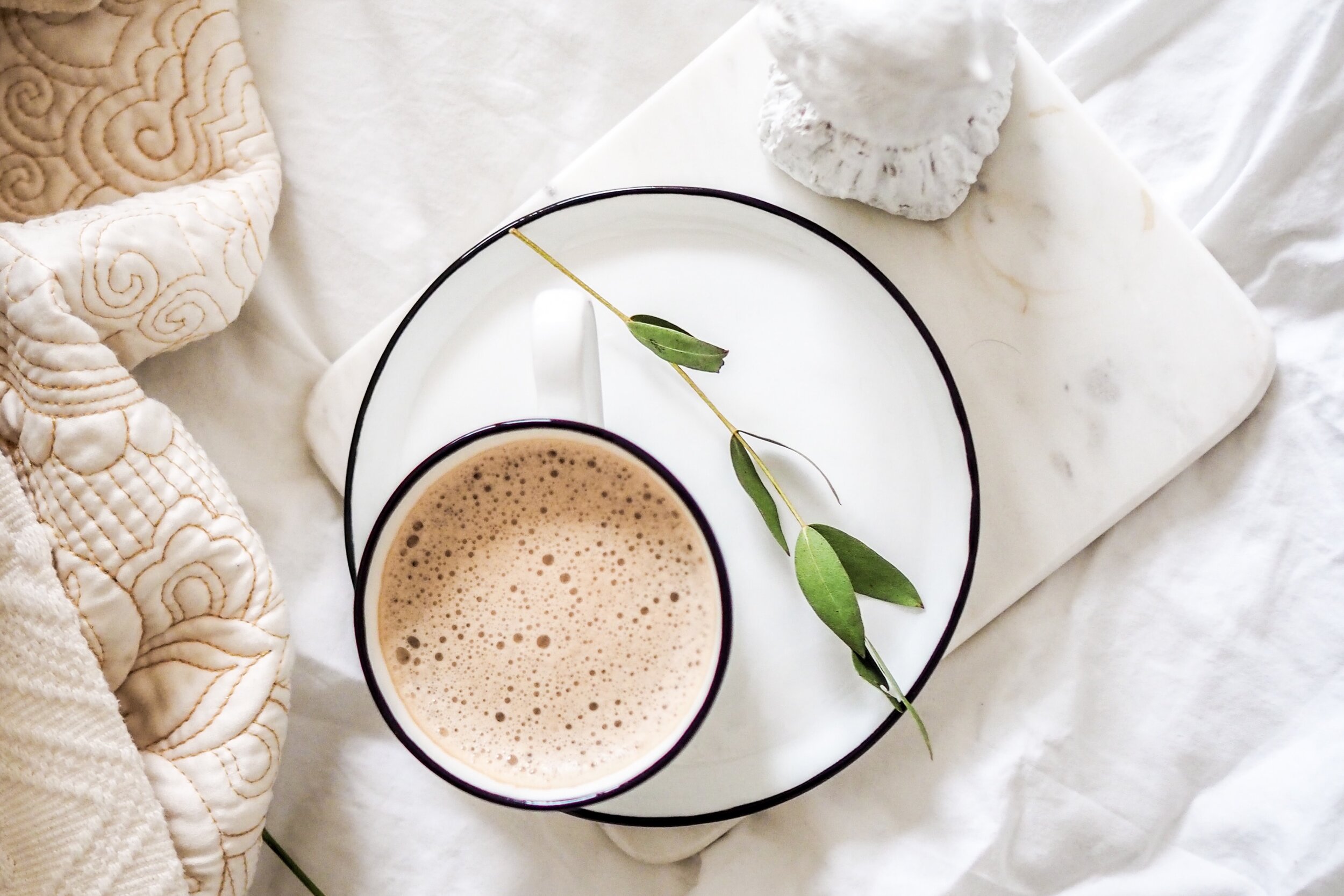How (and Why) to Cut Coffee and Caffeine From Your Life
Coffee is truly a wonderful thing.
But can caffeine play a role in anxiety and stress? Absolutely.
In this post and video I’ll explore:
Why I decided to cut coffee (and all caffeine) from my life
How I failed at cold turkey quitting
How to taper caffeine from your life
Alternatives to coffee
Benefits of going caffeine-free
Scroll down to read more and watch the video!
Pin for later
My Struggle with Caffeine
The number of reasons I wanted to originally quit caffeine were numerous, but one of the things that stood out to me in particular is that I wanted to reduce stress.
When trying to figure out if I was stressed (I was… a lot…), I googled and found article after article saying that if you drink a lot of coffee, chances are you’re stressed out, which then drinking more coffee leads to more feelings of being stressed out because of how the caffeine works on the nervous system.
It literally can make you feel even more strung out.
Caffeine begets anxiety, which begets feeling like you need to drink more caffeine to stay in sync with yourself. It’s a cycle.
Also, I was extremely irritable on top of that, so the stress and irritability went hand-in-hand.
I wasn’t sleeping well, and even though I had good coffee hygiene (not drinking coffee after 12 noon or even cutting it off as early as 10am), I was still facing sleep struggles.
Finally, I was facing some physical ailments that I hoped would subside as a result of cutting out caffeine from my diet.
Why You Might Want to Consider Cutting Out Caffeine
The number of reasons why you might want to cut out coffee and/or caffeine from your diet are numerous. Besides the fact that if you have a medical condition that prevents you from consuming caffeine, other reasons that you might want to go caffeine-free are to:
Reduce stress, anxiety, and/or irritability
Sleep better
Stop using coffee as a crutch
Be more in tune with your body’s needs
Help heal a physical ailment
Don’t Go Cold Turkey (Stop Trying to Be a Badass)
That “stop trying to be a badass” was directed right at me.
Being an all-or-nothing type of person, I decided one day that I was going to go from 3-4 cups of coffee per day and just stop cold turkey.
It was a painful day. I remember going for a run that morning, and just feeling so sluggish yet peaceful. It definitely seemed like a nice change from the normal outpouring of thoughts and ideas that I normally had when I went for a run.
But the rest of the day?
I could barely function. It was like someone removed a part of my brain and just threw it down the garbage disposal.
I was literally slurring my words. It was to the point where my partner was like, “Are you ok?”
So, if you’re more of a badass than me, try to go cold turkey. Go for it.
But for the rest of us, a caffeine taper might be a better bet.
How to Taper Yourself Off of Coffee and Caffeine to go Caffeine-Free
The taper is the way to go in my opinion!
The second time I tried to quit coffee, I tapered myself down to tea instead of coffee, and it worked much better.
Here’s a suggested 1-month schedule that you can follow, depending on your preferences and how your body reacts:
Weeks 1 + 2
Drink as much caffeinated tea as you want. Whether you’re drinking black tea or green tea, or even white tea, the caffeine content of tea is going to be a lot less than that of coffee.
Per serving, here’s how many milligrams of caffeine there are in each type of hot beverage:
Coffee: 100-200mg
Black tea: 40-80mg
Green tea: 35mg
White tea: 13mg
So you can see, if you’re going from 4 cups of coffee (upwards of 800mg of caffeine per day), even if you substitute that with 4 cups of black tea, you’re still getting less than half of the amount of caffeine you were getting before.
Week 3
Now, limit yourself to 2 to 3 cups of caffeinated tea per day. If you still find that you’re itching for more hot beverages in your life, then supplement it with herbal tea.
Week 4: The Home Stretch
Finally, limit yourself to 1 cup of caffeinated tea per day, and supplement the rest with herbal tea.
I personally found that even though I let myself have as much caffeinated tea per day as I wanted the first week or two, within time I found myself craving the hot cup of whatever less and less.
Caffeine-Free Alternatives to Coffee
Any herbal tea will do, quite frankly.
Some favorites that I’ve discovered are:
Barley tea: Quite frankly, I know the idea of barley tea seems odd, but it’s quite good and easy to make.
Immune tea: I also really liked the Traditional Medicinals Organic Echinacea Plus immune-boosting tea. I suspected that some of my physical ailments that got me started down this no-coffee journey in the first place had to do with my immune system, so drinking this helped me feel a little more assured that I was supporting my immune system in a good way.
Mint tea: The Trader Joe’s peppermint tea is one of my favorites, and has been even long before I started going caffeine-free. It’s a great way to get a dose of mint without having a chocolate mint after-dinner treat.
Benefits of Going Caffeine-Free
Surprise, surprise: I’m able to wake up without coffee.
Being able to wake up on my own is a weird accomplishment to celebrate, but if you’re an avid coffee drinker I’m sure you can relate to the “Don’t talk to me, I haven’t had my coffee yet” type of feeling.
Instead of waking up and pouring coffee into my face immediately, I’ll just get up and have a really big glass of filtered water, and sometimes I’ll add the juice from half a lemon in there if I feel like I need to wake up my GI tract even more.
And surprisingly? In the mornings, I feel good. I feel alert. And I feel ready to go.
Another benefit is that I’m not dependent upon coffee as a crutch. How many times do we say to ourselves, “Ugh, I must need more coffee”? When you feel that afternoon sluggishness or if your brain doesn’t feel like it’s working quite right in the morning, we’ll often times just reach for a cup of coffee.
But when you remove caffeine from your life, you realize that maybe your body just needs something else, whether that’s a physical or mental break for a few minutes.
You’ll be able to be more mindful with your body and mind’s wants and needs, rather than filling it up with more caffeine.
I’d also like to say that I’m less irritable since cutting out caffeine, but you’d have to ask my partner and kids what their opinions are on that….
I do feel more centered and less strung out. I feel less stressed, too.
Tell me—are you considering going caffeine-free? Let me know why, or tell me your caffeine story in the comments below!
Cover image by Jen P.
Click for Video Transcript
- If you want to get off of caffeine, please do not go from drinking three to four cups of coffee per day to no caffeine. It will be very painful and it will not be pretty.
- Hey everyone, I'm Jenn. Hello Brio is a community of conscious creatives, and if that sounds like you, make sure to hit like on this video and subscribe to the channel for weekly videos about intentional living and minimalism.
- The purpose of this video is not to demonize caffeine. Caffeine definitely has its place. I love caffeine in the past. I would probably love it now. And I always loved to drinking a cup of coffee just because of the symbolism that it brings. It signifies the beginning of the day, kicking off with a really great cup of coffee and a book is just the perfect way to start a day.
- Insert the Matt D'Avella-inspired coffee pouring shot right here.
- I've now been two months coffee free one month caffeine free, and my life has changed for the better. That's not to say that I will never drink coffee again. I just, I love coffee way too much to not ever drink it again, but I will be able to do so in hopefully a more responsible way.
- So the reasons that I wanted to originally quit caffeine were numerous. I wanted to reduce stress. I was irritable all the time. So the stress and the irritability kind of went hand in hand. I wasn't sleeping well. And I was also facing some physical ailments that I had hoped would subside as result of cutting out caffeine from my diet.
- To paint a little bit of a picture, I was going from three to four cups of coffee a day to nothing. And the first time I tried, this was back in November. I want to say November, December, and it did not go well. I decided I was going to go full force and cut it out, culture cookie. And it was just like somebody removed part of my brain and ran away with it. I was so physically tired the next day. I remember I was out on a run and everything just felt so quiet and peaceful. That was seemingly a good thing. The rest of the day was a disaster. My ability to do anything was just so stunted the rest of that day that I was literally slurring my words. It was so bad. My husband was like, are you okay? Do you think this caffeine, this no caffeine thing is really a good idea? And I was like, yeah, I'm going to go for it. I'm going to do 30 days no caffeine, just go for it. And then I realized that it just wasn't good for my mental health at the time, so I reintroduced coffee.
- Cut to a couple of months later. I was still facing all the same issues in terms of sleep and irritability and stress. And I was like, okay, maybe it's time that I try this again. However, instead of going cold turkey with lots of caffeine to no caffeine, I did a little bit more of a taper.
- I actually started by lowering my caffeine intake to tea. At first, I let myself drink as much tea as I wanted. And because I tend to like green tea, more than black tea, I just went for as much green tea as I wanted holding nothing back from that, because I just wanted to allow myself to treat myself as much as during this transition time when I was going from coffee to no coffee. So I went for a couple of weeks where I would have as much tea as I wanted. And I saw that as the time went by, I needed and wanted a less caffeine naturally. So that was a really good step. And I was going to stay on this path until I decided that maybe trying no caffeine again, would be a better route for my physical elements that I was seeing and hoping that that would help fix that.
- I went out and bought some herbal teas. I got some barley tea, which is really interesting if you've never tried that. And I also love peppermint tea. I think pepperminty is great, whether you're doing no caffeine or not. It's just a really nice way to cap a meal after you're done. It's just kind of like a nice, like an after dinner mint, but it's peppermint tea instead of being a chocolate mint.
- Some of the benefits that I've noticed is that I'm able to wake up on my own. And that just seems so insane to me. But instead of getting up and immediately chugging coffee, I'll just get up, have a really big glass of water. Sometimes I'll have lemon water and I feel pretty good. I feel pretty alert. I feel ready to go.
- Another benefit is that I'm not dependent upon coffee as a crutch. So I know that, you know, if you're a coffee drinker, you might have been here too, or you might be there right now as you're watching this video. But when you're a coffee drinker and you feel that afternoon's sluggishness or you feel like your brain just isn't working quite well enough in the morning, you're like, oh, I just need some more coffee. Right? We've all been there. But let me tell you, when you remove caffeine from the equation, you realize that, oh, you know what, instead of coffee, maybe I just need to take a break. So you kind of are a little bit more mindful with your physical and your mental awareness so that you can give your body what it needs rather than giving it a drug. Even though, you know, caffeine is obviously not a hard drug, it's a drug.
- I would like to say that I'm also less irritable, but you'd have to ask my husband and my kids.
- But in all honesty, I do feel a little more centered and a little less strung out. And, you know, various life circumstances have changed in the past few months anyway. So it's hard to tell what began what, but at the same time I do feel less irritable. I do feel less stressed out.
- The one issue that I still face is with sleep. And that's just something that I was not blessed with. I do not have the ability to fall back asleep when I wake up in the middle of the night. And notice I say "when" I wake up in the middle of the night and not "if." It just goes to show you that now that I'm two months without coffee and one month without caffeine, that caffeine wasn't really having an effect on my sleep. So, you know, maybe if you're in the boat of like, maybe if I cut out caffeine, I'll sleep better. Maybe it will maybe it'll work, and maybe it won't, it's really up to you.
- That's it for this week. I hope you found this helpful.
- If you're considering cutting out caffeine or have cut out caffeine, I would love to know why and how you did it and what the benefits are that you're seeing. Leave a note in the comments below, and I'll talk to you next week.

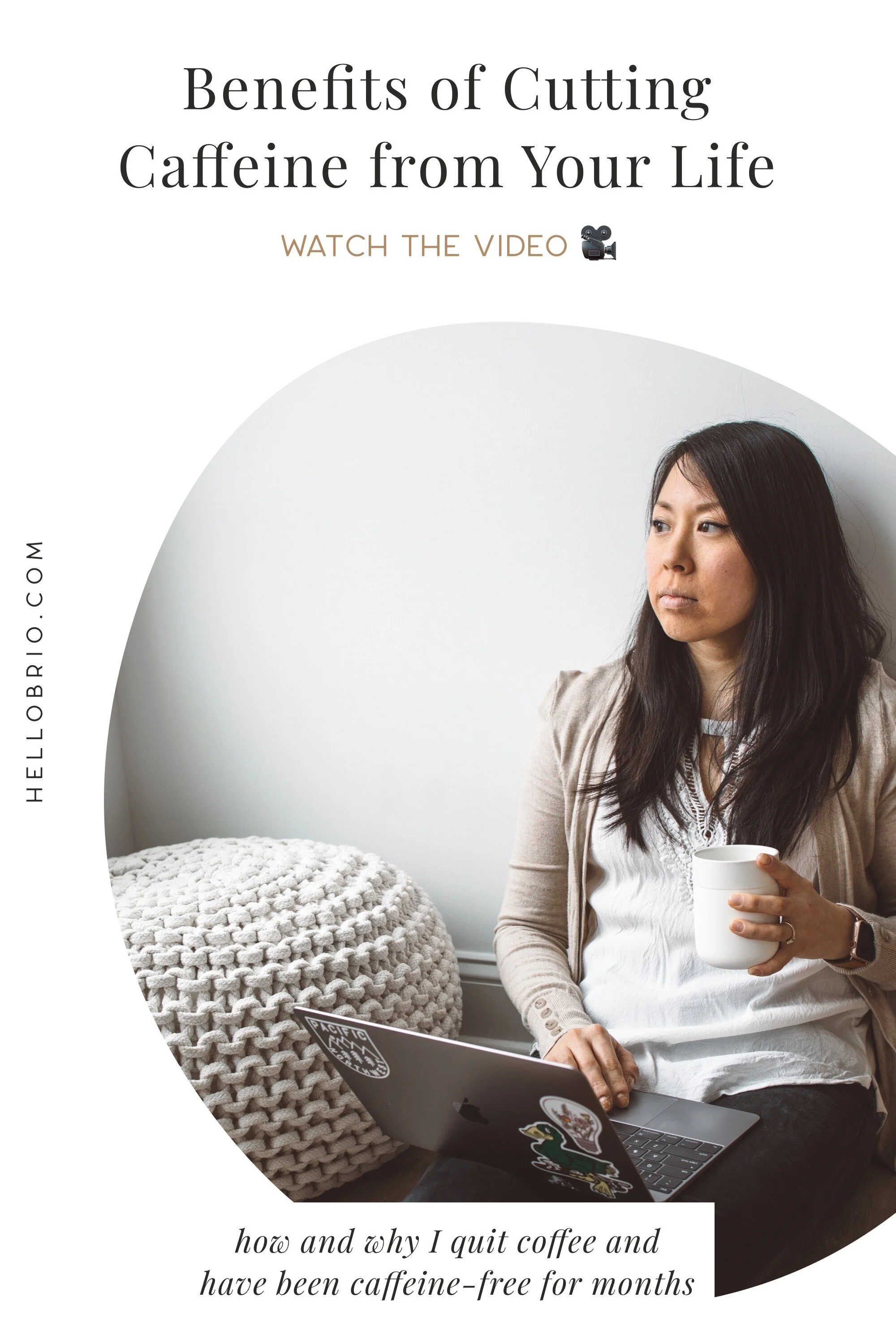


![How I journal on my iPad in Notability [Updated for 2024]](https://images.squarespace-cdn.com/content/v1/603fd2e6b89a792feb000f9c/1675357907805-TSRYCEN9KUN66DNMHOLN/IMG_6041.JPG)
